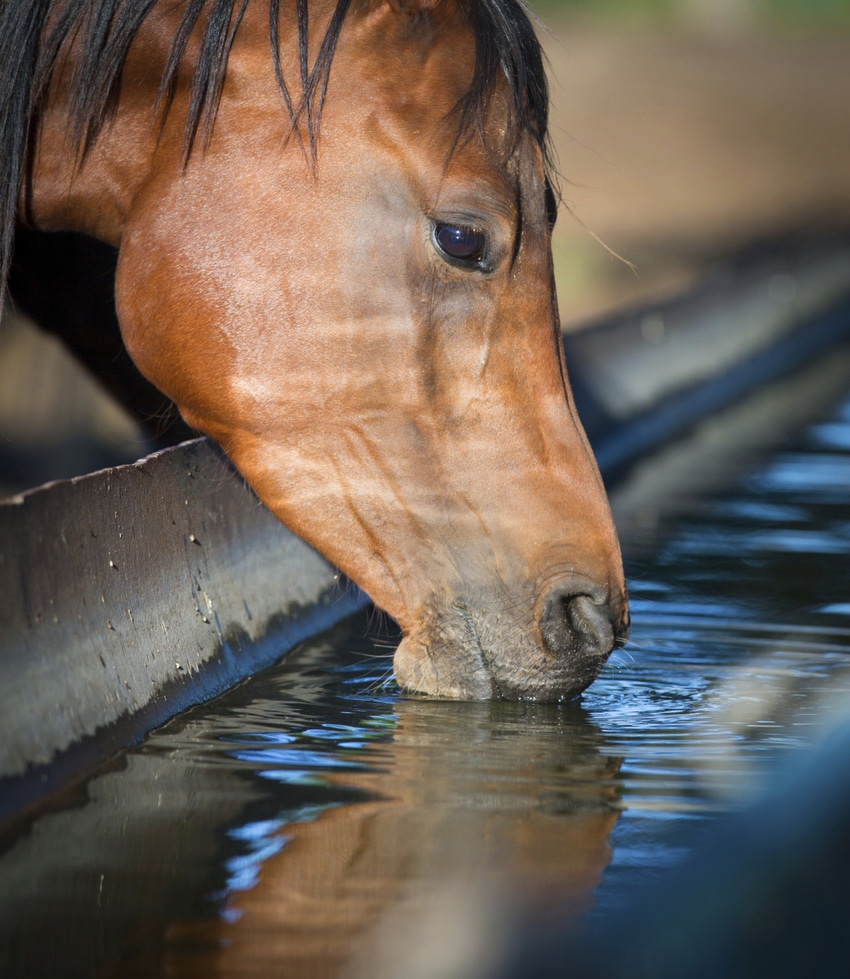Semi-metal studied as foal pneumonia treatment
Gallium maltolate could be alternative treatment for Rhodococcus equi pneumonia in horse foals.
March 16, 2020

Researchers at the University of Georgia and Texas A&M University may have discovered a way to treat foal pneumonia without promoting multi-drug-resistant bacteria, according to an announcement from the Morris Animal Foundation, which funded the research.
In a clinical trial, the researchers found that gallium maltolate (GaM), a semi-metal compound with antimicrobial and anti-inflammatory properties, could be a viable alternative to antibiotics, the announcement said. The team published their findings in the Nature journal Scientific Reports.
Pneumonia is one of the leading causes of disease and death in foals, and there is currently no effective vaccine licensed to treat it. The bacterium Rhodococcus equi, a naturally occurring bacterium in soil, is implicated in the most severe cases in horses, the foundation explained. Current methods to screen for R. equi are imprecise and many foals are treated with antibiotics -- such as the combination of a macrolide antimicrobial (e.g., azithromycin) with rifampin (MaR) -- even though they would not have developed pneumonia.
“While that treatment strategy saves lives in the short term, it’s really driving this resistance problem, because for every one foal that needs treatment, you treat several foals that don’t need treatment,” said Texas A&M's Patsy Link chair in equine research Dr. Noah Cohen, a primary investigator of the study, along with his late colleague Steeve Giguère. “For the sake of foals, we want to offer veterinarians a better, non-traditional option.”
For the study, the team screened 57 foals from four farms in central Kentucky for subclinical pneumonia and then divided the foals into three equal groups. Two groups contained foals with subclinical pneumonia, meaning ultrasounds found lesions on their lungs, but the foals had no clinical signs, the announcement said. The foals also all lived on farms with positive cases of R. equi pneumonia that year. Those groups were given either MaR or GaM for two weeks.
The third group served as a control group and was made up of foals that were the same age as the subclinical foals but were healthy. They were monitored and not given any treatment.
After two weeks, researchers analyzed fecal samples from each foal. DNA tests revealed that the MaR-treated group had an increase in both the number and diversity of antibiotic-resistant genes in the bacteria, the foundation said, noting that the bacteria were resistant to multiple drugs and antibiotics. However, the GaM-treated and control groups showed no change in the number or diversity of resistance genes.
The team also experimentally infected soil plots with resistant and non-resistant strains of R. equi to see how foals might contaminate their environment with their excrement that can contain unabsorbed and metabolized antibiotics, the foundation said. MaR tended to reduce the number of bacteria in a plot’s soil but increase the proportion that were resistant.
Cohen said one of his team’s next steps is to test the effectiveness of GaM on foals that are clinically infected with R. equi.
The Morris Animal Foundation also funded a companion paper to this study in which researchers compared three techniques to monitor antimicrobial activity and the spread of antimicrobial-resistant R. equi.
You May Also Like



